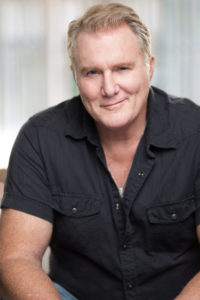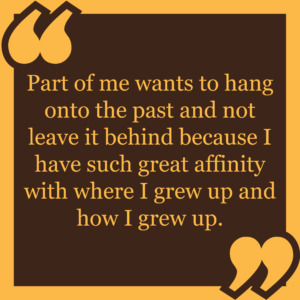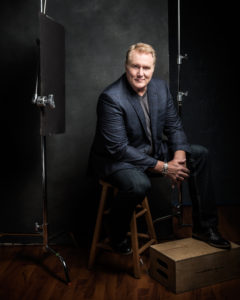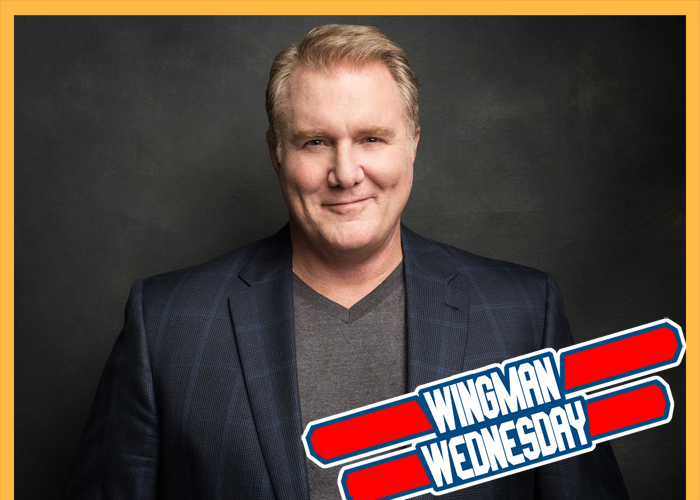
Michael McGrady of “Ray Donovan” and “Beyond” has seen the entertainment industry go through numerous changes throughout his storied career. Many of those changes have been improvements based on innovation, ultimately leading to what is currently being called the Golden Age of Television. Technology has advanced, making it possible to translate any concept imaginable to the screen. Storytelling itself has changed, not only becoming more realistic and gritty, but profoundly more character-driven. And with so many different platforms presenting original content to the public, the number of jobs for actors has greatly increased. But even as the positives of this prolonged revolution continue to outweigh the negatives, there is always a voice softly speaking inside the head of the nostalgic mind.
Are we moving too quickly for our own good?
We recently sat down with McGrady to discuss the continuously-evolving entertainment industry, how he would have never gotten away with so many F bombs 20 years ago, and why now, at 57, he finds himself being drawn to the past.
TrunkSpace: One of the things we love about the current TV landscape is that an actor can do a show like “Ray Donovan” and a show like “Beyond,” both at the same time and reach different audiences. It wasn’t always that way, right?
McGrady: No. Absolutely not. That’s why it’s such a fun time right now for actors. There’s so much airtime out there… so much product. My gosh, back when I started back in the 80s, I think FOX was new, believe it or not. There weren’t 500 channels. You had maybe a handful of dramas that you could do on three or four different networks and that was it. You could maybe do a film here or there… indie films weren’t even big yet during the early 80s. They were just kind of coming on the scene then. So for me now, after three decades of doing this, I had no idea the landscape would be so wide and so deep.
TrunkSpace: Back in the 80s it must have been difficult to land consistent guest spots because once you were on a show, they weren’t going to have you back to play someone else… and with so few shows on the air, the ceiling must have been low?
McGrady: Yeah. That’s absolutely true. You would do a handful of guest stars that year and unless you were a series regular on the show, that would be pretty much it. They wouldn’t ask you back. Every once in awhile there were a few shows back then like “Murder, She Wrote” and a handful of others that would ask you back if they liked you… even as different characters, believe it or not. I believe it was that as long as you allowed one or two years between the last time you did a guest spot, they would allow you to come back and do another one. Bread and butter for me was guest starring roles and I was very fortunate because I would pick up two or three decent film roles along the way during the off-season, so I was always busy. I was very lucky in that respect. But the opportunities were not nearly as vast as they are now.
TrunkSpace: Strictly from an acting perspective, the content itself must be so much more interesting now due to so much of the content on television being character-driven.
McGrady. Oh yeah. It’s funny because my wife and I were just having this conversation not too long ago and I was telling her that after being in this business for as long as I have, I have really seen some very serious, tangible changes in terms of the product. Again, going back to the 80s and earlier on in my career, television was pretty clean. It was pretty traditional, conventional, and I’d say pretty far right. I’d go so far to say even sanitized, to a certain extent. And then we started breaking some ground with “NYPD Blue” and some other shows that kind of opened the way for darker characters, darker subject matter, and stuff that had some gravitas to it. Then of course cable blew it all wide open with all of the stuff they started coming out with. “The Sopranos” of course came along and then “Six Feet Under” and then “Nip/Tuck.” We really ventured off into some different adventurous lands. Everybody had to kind of bring a different game. Writers, actors, producers… everyone who is involved in filmmaking had to up their game in order for this transformation to take place, at least on a global level like it did. It was slow, but when it happened, boy did it happen! It just snowballed pretty quickly and now you have these amazing shows like “Ray Donovan” and another show I was on called “Southland.” That was a really great show. To this day I have law enforcement personnel and firemen who come up to me and say, “That show was probably one of the most accurate depictions of law enforcement that we’ve ever seen.” They were huge fans of it and they still are because we were able to explore things in a way that dealt with real life.
I also think that reality TV had a lot to do with that too. As much as it became a bane of our existence in the beginning, it also helped to open the doors to a little more of the reality of what we’re doing and what we’re seeing. If you watched “Cops” or all of these other shows we had on TV, you can’t have anything less exciting than that when you’re doing a cop show. People won’t watch it. It has to have those realistic elements and the drama behind it, the good storytelling, and the interesting characters. We kind of cross-pollinated.
doing and what we’re seeing. If you watched “Cops” or all of these other shows we had on TV, you can’t have anything less exciting than that when you’re doing a cop show. People won’t watch it. It has to have those realistic elements and the drama behind it, the good storytelling, and the interesting characters. We kind of cross-pollinated.
TrunkSpace: You mentioned how cable stepped in and helped to change the TV landscape, but you actually appeared on one of the first scripted cable shows, “1st & Ten.” It has to be pretty cool to think that you were a part of that seed that ultimately grew into what TV is today?
McGrady: You know, that’s interesting. I’ve never really thought about it like that. I haven’t thought about that credit in… probably since I ended it 30 years ago. (Laughter)
We kind of thought of it as soft porn at the time. (Laughter) There was a lot of T&A on that show. O.J. Simpson was one of the stars of the show. They had all of these NFL players who came on board. Yeah, they were exploring some pretty trippy subject matter, no doubt.
TrunkSpace: And yet still there’s a big difference between how they were handling storytelling then to how it is being handled now.
McGrady: Just the technology allows us to do things that we weren’t able to do back then. Cable can take you places now without all of the restrictions of the FCC and what not. It is much more exciting and much more adventurous… taking you to deep and dark places, both metaphorically and physically as well. There’s nowhere a camera can’t go now with CGI and all of those different elements. I guess every product is ripened at its own time. I look back at the stuff I did in the 80s, like “1st and Ten” and a lot of the Aaron Spelling shows and stuff, and they were kind of rather pedestrian in terms of the subjects. I look at “Ray Donovan” and my character uses F bombs every third word. (Laughter) I’m like, “Wow, I could never have gotten away with this 20 years ago.” (Laughter)
TrunkSpace: What’s great about a show like “Ray Donovan” is that not only is it entertaining people in the present, but it will no doubt inspire people in the future much like some of these earlier shows have done.
McGrady: Absolutely. That’s what’s exciting about it. It almost seems like every year and certainly every half decade or so that I’ve been in this business… and I can only speak from my experience… but you can watch how the technology is changing with our understanding of human nature and understanding of what a story is and what is truly interesting to us and what isn’t. Also what we are allowing ourselves to have the courage to explore about relationships, gender, sex, race, nationality… all of those things. We’ve come to a place where there really is no limit to any of it. I always think, “Gosh, I’m pretty excited about what’s going on now, but what about five years from now?” I keep telling my kids, “When Dad’s dead and gone, mark my words, you’ll have holograms and you guys won’t be going to movie theaters.” My kids are laughing at me and I’m going, “You watch!” (Laughter)
TrunkSpace: Well, a dad decades ago probably said something similar to his kids. “When Dad’s dead and gone, mark my words, you’ll be watching movies with sound!”
McGrady: Yeah, that guy came from my camp! (Laughter) I’m right there with him.
TrunkSpace: Things always improve when it comes to technology, but at the same time, there always seems to be a place for what came before. Vinyl is a perfect example of that.
McGrady: That’s absolutely right. I have that same philosophy. I think in many ways technology is sort of overwhelming. Let’s face it, there is a dark side or different side to every coin. Technology has been a bit of a set back for us in many ways. Look how people are texting and how nobody talks anymore. Kids don’t talk to their parents and they bring their phones to the dinner table. That technology is also separating us as well.
I love film. In fact, I have an old AV-1 Canon that I’ve been thinking about taking out. I have a really nice digital, but I’m thinking about going back to my Canon just because I actually took better pictures with it than any that I’m taking now with a high end digital. And I don’t think it’s just the technology. I think back then you had to be a lot more thoughtful about composing a photograph and getting the light and shot just right. Because it was expensive to develop, a couple of bucks a shot, it’s not like you had 900 tries at it. So I think it forced you to put a little more thoughtfulness into it. The emotion of film has that quality.

TrunkSpace: That’s really interesting and very true. When you can take as many tries as you want and see the results immediately, it sort of becomes manufactured at that point and less about the art itself.
McGrady: You know what’s funny about it… I almost think of it this way. For me, it’s almost like we have found ways to make things accessible to anybody… a cross section of people. You don’t necessarily have to have the technical knowledge because you have automatic settings on your expensive digital camera. You don’t have to be a great skier anymore… just good enough with 190 cm skis. Back in my day, if I wore the skis you wear today, they would have laughed at me. “Dude, you’re wearing children skis.” (Laughter) But they figured it out. They went, “If we shorten the skis, we can increase the volume of people who can do this sport.” If they make it easier for people, more people will do the sport, the activity, the project, or whatever it is. It’s even with surfing. For a long time, up until about 10 years ago when longboarding came back in, very few people surfed unless you were a young kid who had the power to swim out into the bigger waves and get up to pop up quickly… all on a little wafer thin potato chip. But when the longboard retro movement hit, it made surfing accessible to anyone even over 50 or 60 because now you’ve got a bigger board, it’s accepted on the beach and nobody is laughing at you. And then the kids started getting into it and they got extremely proficient at it to the point that they started having competitions and going back to the old 1960s style of smooth groove riding and walking the board and hanging ten and all of that. That created a whole entirely new surf category… old new.
And so, we’ve done that across the board with so many things. That’s been great on one level, but now when you go to a mountain… it’s crowded. When you go to a beach… it’s crowded. We went kiteboarding the other day and it was crowded. There must have been 100 kites out in this one bay and I was thinking, “My God, we look like a bunch of ants running around out here.”
But, this whole thing about moving forward and pushing that bar forward… whether it be in film, TV, music or whatever… yeah, I’ve got kind of a love/hate relationship with it. I love it because of all of the cool stuff that we get out of it, but I hate it because in many ways there is a lot of negative energy to it as well.
I just turned 57 in March. I don’t feel it. I don’t live it. I’m pretty active for a guy my age, but I have to say, the older I’m getting, the more nostalgic I’m getting. I’m in Vancouver right now and I’m from Seattle originally. I’ve only spent very short, brief spurts of time up here growing up because it wasn’t the burgeoning city that it is now, but being up here now for this length of time… four months for this season… I really have evolved this strong connection to my past and the Pacific Northwest. I find myself sitting on the deck of the house that we’re renting… and we have this beautiful view through the woods to the ocean… and my wife must have heard me say this a thousand times, “My God, it’s beautiful.” I could stare at this all night long. If this was 20 years ago, I would have been bored out of my mind, but now I look at it and go, “A lot of this is going away.” A lot of the green is going away. A lot of the trees. We’re losing a lot of this. There’s a lot of buildings going up in Vancouver right now. Everywhere you look there’s a crane or there’s a house being built or torn down.
I can’t seem to, within my soul, move forward into the future. Part of me wants to hang onto the past and not leave it behind because I have such great affinity with where I grew up and how I grew up.
“Beyond” airs on Freeform. Season 2 is currently filming. A premiere date has not yet been announced.
Season 5 of “Ray Donovan” premieres on Showtime August 6.


